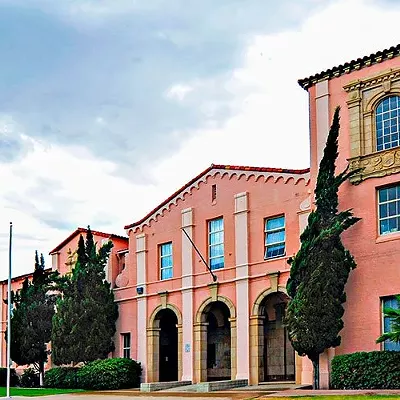Friday, October 7, 2016
The Stampede for TUSD School Board
On Thursday, Sept. 29 the League of Women Voters held a forum for candidates seeking election to the Tucson Unified School District governing board. The current board consists of five members: Adelita Grijalva, Michael Hicks, Cam Juárez, Kristel Foster, and Mark Stegeman. The terms of Juarez, Foster, and Stegeman are up and all three are running for re-election. However, the election is at large and nonpartisan and a number of other candidates have joined the fray. These other candidates include: Betts Putnam-Hidalgo, Lori Riegel, Brett Rustand, and Rachael Sedgwick.
The candidates were each given two minutes for an opening statement. They then answered questions, two of which were provided in advance. The advance questions were in regards to the ongoing desegregation lawsuit and district administration transparency. The candidates were then provided with questions from the audience to which they gave one minute responses. Steve Lynn was the moderator.
Background
Alas, TUSD is not without its controversies. We have seen reports of student violence in and around Palo Verde High School, illegal grade changes by the principal of Pueblo High School (allegedly to increase graduation rates), the changing of absent/tardy records at Pueblo, the fact that less than half the budget goes to the classroom (TUSD: 48.7 percent, state average 53.6 percent), multi-million dollar contracts buried in consent agendas, and who could forget the hijinks when half a dozen boys and girls chained themselves to chairs in an effort to disrupt a district meeting?
It is important to note that the schools themselves vary widely from total failures to wildly successful. University High, which is nationally recognized, is an example of a TUSD school that is succeeding in virtually every category. Schools that do well do so on their own. Those that are in need of guidance and support find little from the administration.
As mentioned earlier, the current board consists of Adelita Grijalva, Michael Hicks, Cam Juárez, Kristel Foster, and Mark Stegeman. Grijalva, Foster, and Juarez make up a majority of the board. More often than not they vote as a block, giving them control of the board and thereby the district. Stegeman and Hicks tend to vote with the majority on routine matters, but are regularly at odds with the majority when it comes to making changes to the status quo. There has been ongoing tension between the board majority and its minority.
The Event
The tension between board members was evident at the forum. Fortunately for all concerned, Juarez and Foster sat at one end of the table and Stegeman at the other. Foster took the lead in attacking Stegman, sometimes by name, sometimes not. It did seem, however, that Stegeman had to correct, or “fact check” as he put it, statements from Foster before answering the question at hand. Stegeman did not retaliate, though towards the end he did mention some of the details of news stories that embarrass (or should embarrass) the district. An example is the controversy that ensued when when it was reported that three members of the internal auditing committee were married to employees of the district which was a violation of the charter, two resigned, the third stayed on and voted for the new watered-down charter that allowed him to stay. Foster was lucky in that she delivered her closing statement after Stegeman, so when she delivered the final laundry list of criticisms he had no opportunity to respond.
The other candidates pretty much left each other alone, though Riegel chastised Juarez for referring to University High students as “upper class,” and Putnam-Hidalgo had to pause in the middle of an answer to ask Juarez to stop talking to her while she was speaking (he apologized at his first opportunity).
None of the candidates were critical of the now discontinued Mexican American Studies Program (MAS), there was unanimous approval with varying degrees of enthusiasm. Putnam-Hidalgo was the biggest fan gushing about how “very successful” it was and that the district should “bring it back.” Riegel expressed support and suggested that it be expanded to include other ethnicities. She went on to say that she arranged to have a Holocaust survivor speak at University High School after some anti-Semitism was observed there. Stegeman said that any “hook” that inspired an interest in learning was great. Juarez said that the program gave Latino students confidence.
Putnam-Hidalgo pointed out the irony of a career path that paid more as educators moved further away from contact with students. She also claimed that the superintendent encouraged teachers to not report or document incidents or problems to make it easier to “game the numbers.”
Stegeman, Riegel, and Rustand expressed the need for increased student discipline and teacher support. Rustand also spoke in favor of “site based leadership,” and he is not a fan of “high stakes testing.”
None of the candidates were critical of the over forty year (that’s four-zero year) old desegregation lawsuit.
Jonathan Hoffman is the Weekly's resident Libertarian columnist.
Tags: TUSD , TUSD board , education , Kristel Foster , Cam Juarez , Mark Stegeman , Lori Riegel , Brett Rustand , Rachael Sedgwick , Betts Putnam-Hildago , Adelita Grijalva , Michael Hicks , Tucson Unified School District













